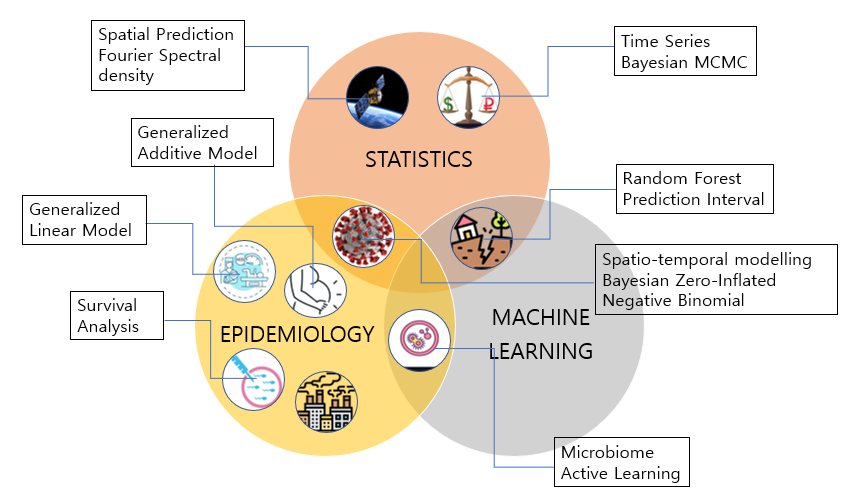Google Scholar : PUBLICATION
Spatial or Spatio-temporal data are continuously gaining increasing interest, and it is now commonplace to consider geographical aspects of health outcomes with applications to public health and/or preventive medicine. For example, the world is experiencing the COVID-19 pandemic, a great threat to our public health, and we can study its mortality rate at the early stage considering the spatio-temporal correlation of the infectious disease over the regions1. I have been broadly studying theories, methodologies, and interdisciplinary applications that can be used to analyze such data within the disciplines of Statistics, Epidemiology, and Statistical Learning. Over the past 5 years, I have participated in various collaborating research such as air pollution epidemiology, remote sensing, microbiome data analysis, and tobacco health effect estimation.

Highlights
- June 2025: Paper presentation, An Efficient Active Learning Design through Random Forest under Covariate Shift, 2025 KSS Spring Meeting
- March 2025: Paper presentation, BSTZINB: A Bayesian Framework for Negative-Binomial Modeling of Spatio-Temporal Zero-Inflated Count Data in Epidemiology, ENAR 2025 Spring Meeting
- October 2024: Internal Grant received as Co-PI: SPH-UNR and SPH-UNLV Collaborating Projects, supported by the School of Public Health, University of Nevada, Reno